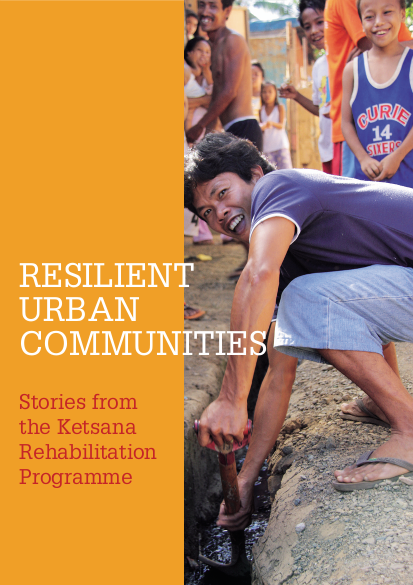
Christian Aid and its partners launched an emergency response programme that provided relief, early recovery, and rehabilitation support to some of the most affected and vulnerable communities. The relief and early recovery phases of the programme lasted for six months, while the ensuing rehabilitation phase lasted for 30 months, aptly ending on the occasion of Ketsana’s third anniversary in September 2012.
The Ketsana Rehabilitation Programme sought to “enable urban poor communities seriously affected by Typhoon Ketsana to recover from their loss and strengthen their capacities to sustain their lives and livelihoods.” Consequently, the Programme set out not only to restore the pre-Ketsana status quo, but to enhance the affected communities’ resilience to disasters and reduce their vulnerabilities. Changes would have to be seen beyond the target individuals, households, and communities to become sustainable; changes in the beneficiaries’ environment would have to enable institutionalized and lasting impact that could benefit a bigger and more inclusive population.
Links
Resource collections
- Cyclones, hurricanes & typhoons
- Learning from crises
- UN Habitat - Urban Response Collection
- Urban Response - Urban Crisis Preparedness and Risk Reduction
- Urban Response Collection - Community Engagement and Social Cohesion
- Urban Response Collection - Economic Recovery
- Urban Response Collection - Environment and Climate Change
- Urban Response Collection - Housing, Land and Property
- Urban Response Collection - Urban Crisis Response, Recovery and Reconstruction
- Urban Response Collection - Urban Resilience